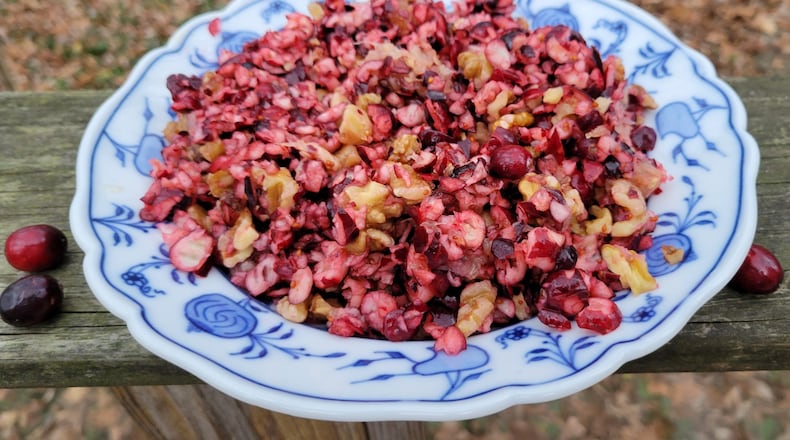Notre-Dame-de-Lourdes is said to be home to 700 people, 500 cranberry plants, and 6 million bees. The bees pollinate the cranberry plants each spring.
Three village families had the crazy idea in 2000 to start growing organic cranberries. A member of one of the three families, Martin LeMoine, is president of Fruit d’Or.
Fruit d’Or sells fresh and dried berries under the brand name Patience Fruit Company. The name Patience conveys equally in French and English the laborious process of growing organic berries.
Like other organic farms, weeds and pests must be controlled by hand. And of course, no genetically modified ingredients, chemical fertilizers, or pesticides can be used.
However, organic cranberries are even more challenging than other organic produce, because cranberries are famously harvested in flooded fields. Organic cranberry growers must keep the water pesticide-free, not just the soil.
A popular misconception is that cranberries actually grow in water. In reality, they grow on bushes, like other berries.
To facilitate harvesting, the fields are flooded in the fall, a thresher loosens the berries from the bushes, and the berries fall into the water. Because of their light weight and buoyancy, they float to the surface, where they can be gathered.
Ocean Spray is the dominant cranberry producer, responsible for 60% of the world’s cranberries, and like MOON Co-op Grocery is cooperatively owned. Ocean Spray is owned by 700 growers mostly in Wisconsin, whereas MOON Co-op is owned by nearly 1,000 consumers mostly in Butler County.
Ocean Spray’s great innovation was wet harvesting, but keeping the water pesticide-free has been challenging for the company. The organic cranberry bogs in Notre-Dame-de-Lourdes work on a closed water circuit. The system captures rainwater and melted snow and directs the water through ditches that irrigate and flood the bogs during the fall harvest.
Ocean Spray was founded around 1930 originally to sell canned cranberry jelly. Jellied cranberry sauce is unappealing to me, and you don’t need a recipe, only a can opener.
Cranberry relish, on the other hand, is one of my favorite Thanksgiving dishes. Coarsely chop 1 bag (8 ounces or 2 cups) of Patience cranberries in a food processor and transfer to a bowl.
Mix the crushed cranberries with 1/2 cup chopped walnuts, 1 peeled and chopped orange, and 1/4 cup of local honey. Better to crush the walnuts by hand and chop the orange with a knife, because a food processor may turn them to dust and mush.
If a cranberry is fresh, it bounces. Try it with Patience.
Fresh organic cranberries are available at MOON Co-op, Oxford’s consumer-owned full-service grocery, featuring natural, local, organic, sustainable, and Earth-friendly products. The store, located at 516 S. Locust St. in Oxford, is open to the public every day. www.mooncoop.coop.
About the Author
